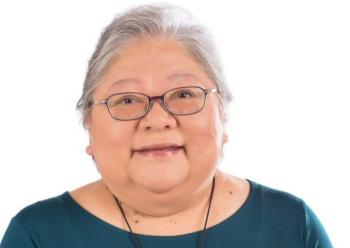Image Caption
Summary
Local Journalism Initiative Reporter
Windspeaker.com
An open letter being circulated among university professors is asking them to take a stand on what could lead to unparalleled powers for the Canadian Security Intelligence Service (CSIS) and RCMP against racialized peoples.
The letter was drafted by the Canada-China Focus advisory group, a project of the Canadian Foreign Policy Institute and the Centre for Global Studies at the University of Victoria.
The letter hopes to communicate the group’s concerns to David Johnston, the independent special rapporteur assigned March 15 to delve into allegations of electoral interference in the last two general elections. He is to provide recommendations to identify gaps or areas that need attention to “protect the integrity of Canada’s democracy,” reads a press release from Prime Minister Justin Trudeau upon Johnston’s appointment.
“The initiatives announced to date suggest that strengthening national security agencies such as CSIS and the RCMP will help combat foreign influence,” reads the letter from the Canada-China Focus. “Yet these agencies have documented histories of racism towards Indigenous, Muslim, and other racialized communities, of repressing dissent, and promoting environmental racism.”
As far as Dr. Lorna Wanosts’a7 Williams is concerned, the almost-frenzied response to alleged interference by China has been driven by racism. Williams is Professor Emerita of Indigenous Education, Curriculum and Instruction at the University of Victoria and Canada Research Chair in Education and Linguistics,
“It just feels like there’s so much more expression of racism and especially toward people of colour, and right now toward people of Chinese ancestry,” she said.
Opposition parties started calling for a public inquiry into election interference shortly after two media outlets began reporting with information from anonymous sources that leaked documents from CSIS alleged interference by the China government in Canada’s election.
People of Chinese ancestry and more broadly people of Asian descent were targets of both physical and verbal abuse when the coronavirus pandemic spread from China to the rest of the world, points out Williams. And now some Chinese Canadian politicians have been forced to defend themselves against allegations that they were involved in election interference.
Williams, 75 years old and a member of the Lil’wat Nation in British Columbia, says she has experienced racism first-hand throughout her life and that is one reason why she has signed the open letter.
“It’s important for Canadians in all areas to be able to say something and I think that university professors have to take a stand,” she said.
The letter expresses concern about the “toxic” direction discussions of foreign interference and national security have already gone with accusations being leveled against Chinese Canadians.
“Such accusations can quickly lead to gross violations of people’s democratic rights and personal security,” reads the letter. “For too many, ‘foreign interference’ is simply a codeword for ‘Chinese’ with all the racist overtones that have been imposed on that term.”
The letter affirms that Canada, along with other countries, has the right to non-foreign interference in all its political affairs and that no country, including Canada, has the right to intervene in any other country’s political affairs.
It goes on to caution, “Given Canada’s own history of racism, colonialism, and the dispossession of Indigenous peoples, defining what or who is ‘foreign’ may become extremely problematic. Through their family connections, economic activities, and educational journeys, many Canadians are linked to people and institutions around the world in multiple, complex ways. Drawing lines between what and who is Canadian, and what or who is foreign can be extremely divisive.”
Williams says that “history of racism, colonialism, and the dispossession of Indigenous peoples” is what has always driven RCMP and CSIS when it comes to their dealings with Indigenous peoples.
“They don’t need any further permission to treat us badly. They always have. And it’s because that’s the view that’s been present about Indigenous people right from the beginning of settlement,” she said.
The letter presents Johnston with five recommendations, the majority of which focus on combatting racism and racist attitudes.
Wiliams says that as university professors take a stand, they may become targets in the same way Chinese Canadian politicians have. But it’s a risk she’s willing to take.
“Unless Canadians in all areas express their view that that is wrong, then nothing will change because the racism in Canada is so normalized, so normal, that people don’t realise that what’s happening is not right,” she said.
Wiliams has been retired since 2014, but she says she is still active in the academic world. In 2018, she was presented with an Indspire award in education. The Indspire awards recognize Indigenous peoples who exemplify excellence.
Johnston has until May 23 to recommend “any additional mechanisms or transparent processes, such as a formal public inquiry, he deems necessary to reinforce Canadians’ confidence in the integrity of our democratic institution” reads Trudeau’s March 15 press release.
Johnston has until Oct. 31 to complete a review of relevant classified and unclassified records and documents, and consult with federal institutions, agencies, and officials, including CSIS, the Privy Council Office, and Elections Canada and others.
Never miss a Windspeaker article. Subscribe Today to our new Windspeaker Newsletter!
Local Journalism Initiative Reporters are supported by a financial contribution made by the Government of Canada.

